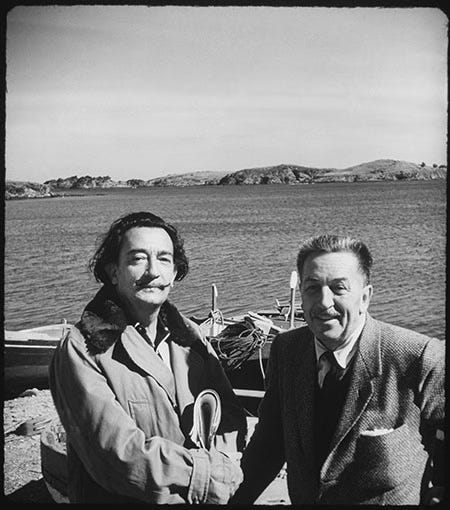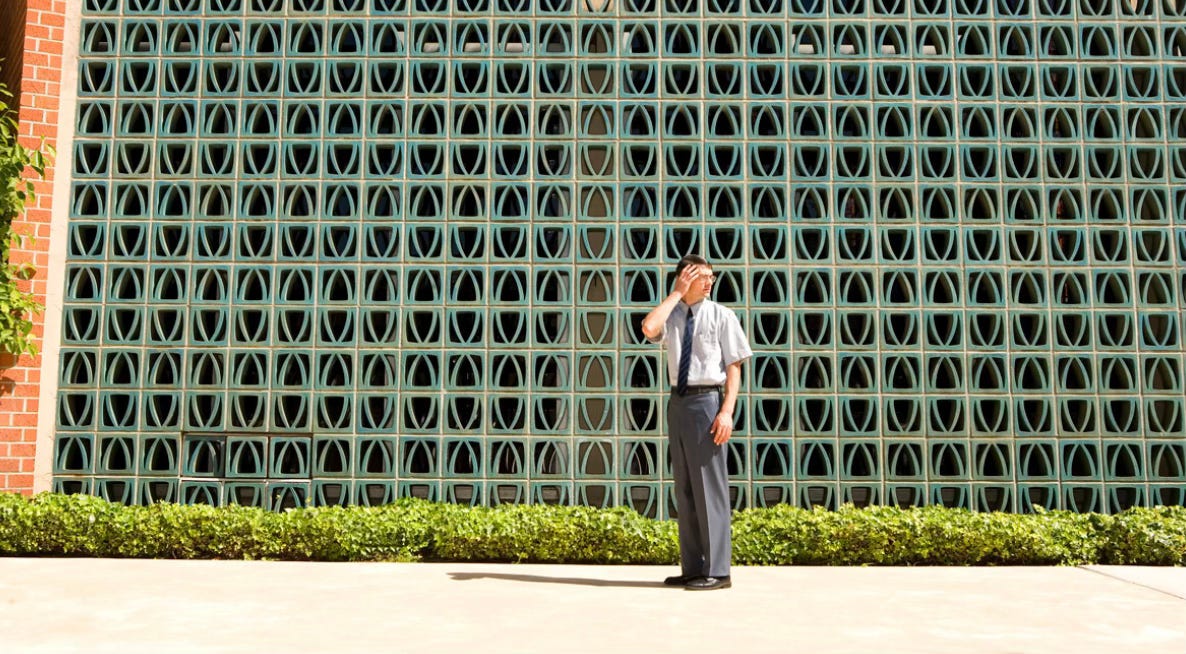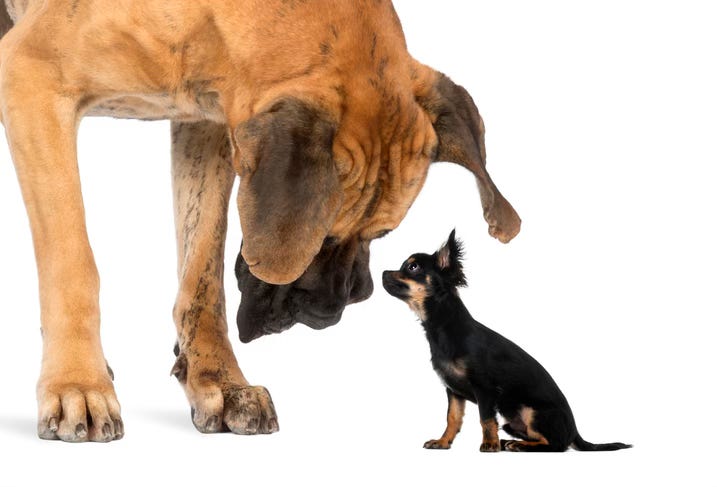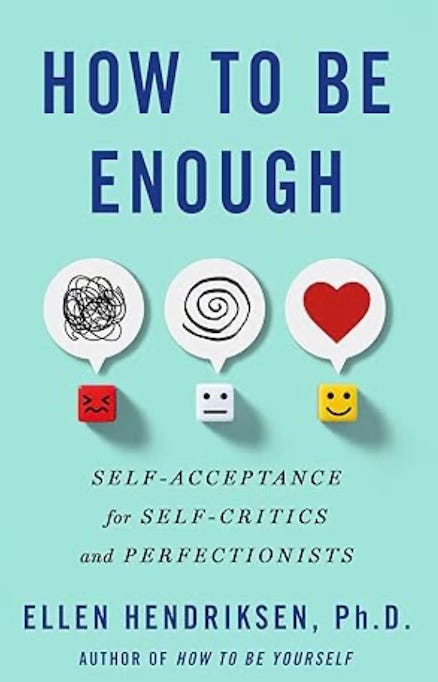"We see the world as we are"
Why so many of us expect criticism, and how to update old mindsets
Hi everyone!
📢 📢 📢 Three quick announcements!
📢 1️⃣ These are uncertain times, to say the least. Anxiety about job security is understandable, but for a lot of us, layoff anxiety goes beyond economic uncertainty. If this sounds familiar, check out my new article, When Your Layoff Anxiety Won’t Go Away, in Harvard Business Review.
📢 2️⃣ Next, Victoria Garrick Browne, who first made a splash with her important TedX Talk, Athletes and Mental Health: The Hidden Opponent, graciously had me on her podcast Real Pod. The podcast’s name says it all: refreshing vulnerability, relatable candor, and 100% real.
📢 3️⃣ Finally, I’m proud to announce that How to Be Enough has reached a big milestone: it’s been translated into 25 different languages! 🎉🎉🎉
With that, on to this week’s newsletter!
“We don’t see the world as it is; we see the world as we are.”
“We don’t see the world as it is; we see the world as we are.” I got this exact phrase from Dr. Thomas Lynch, developer of Radically Open Dialectical Behavior Therapy, who makes several appearances in How to Be Enough, but the general idea has been expressed by everyone from Virgil to Anaïs Nin to Stephen R. Covey (now that would be a heck of a dinner party).

In other words, our interpretation of the world around us is heavily influenced by our own experiences, emotions, biases, and beliefs. We filter objective reality through our unique subjective lens.
Which means that those of us who are our own toughest critics tend to make two assumptions:
Assumption #1: Because we are hard on ourselves, we think others will be hard on us, too.
Let me illustrate: A client we’ll call Mark volunteers as Scoutmaster for his 9-year-old son’s scouting troop. The whole troop went camping over a recent weekend. Most of the boys were well-behaved, but one, Elijah, was a total pain in the neck—ignoring safety rules, disappearing without telling anyone, and being rude to kids and adults alike. After a day of dealing with him, Mark lost his cool and yelled at Elijah, “You’re the reason this trip isn’t fun!” Afterwards, Mark was mortified he had lost his composure in front of the other kids and adults, and felt frustrated with himself for letting a fourth grader push his buttons.
He told me in session, “I can’t believe I did that. That kid’s parents are going to think I’m a bully. They’re going to be so mad at me.”
The next week, Mark came in again, looking noticeably lighter. He had run into Elijah’s mom at the weekly troop meeting.
Mark reported: “I was trying to sneak out of the meeting without Elijah’s mom seeing me. But she came up to me afterwards, and I was like, ‘Uh-oh, here it comes.’ But she said, “Hey, Elijah said he had a great time camping out. I’m sure he was a handful. I don’t know how you do it—I certainly couldn’t.”
Mark had been expecting a takedown—a cutting accusation that his character was weak for yelling at a nine-year-old.
But that’s what he was doing to himself.
Again, we see the world not as it is, but as we are. We really are our own toughest critic. If we’re beating ourselves up, chances are others are not judging us as harshly, and may not even be judging us at all.
Indeed, instead of a takedown, Mark got a veiled admission that this particular nine-year-old could be a nuisance, plus some admiration from a worn-out mom.
Assumption #2: Because we are hard on ourselves, we tend to be hard on others, too.
A client we’ll call Katherine is self-conscious about her teeth and smile, and to cope, she’s developed a habit of judging others with “bad teeth”—especially those who seem unconcerned with their appearance. How dare they smile and laugh freely when she struggles with constant self-doubt?
There’s a simple, effective, and, dare I say, warm and fuzzy fix: Being kind to others can help us be kinder to ourselves.
One session, I asked Katherine to experiment with deliberately sending kinder thoughts to strangers she felt the urge to judge. I was worried she’d be offended, but she readily agreed—she didn’t want to be someone who tears others down.
Katherine got a chance right after our meeting, she told me the next week. A woman in a “rad 80s outfit” was in the clinic waiting room, and Katherine complimented her. As they chatted, Katherine noticed her crooked teeth and tried out a new thought: Orthodontic work is expensive and complicated. She’s investing in her awesome style instead. Good for her.
Katherine reported later that being kinder to others made it easier to be kinder to herself. Other people were allowed to have imperfect smiles; therefore, so could she. Non-Hollywood teeth weren’t something that set her apart—rather, they were the norm, and that meant she was normal.
To wrap it up, if you find yourself 1) expecting judgment, or 2) catch yourself judging others for the things you’re insecure about, remember: we don’t see the world as it is, we see the world as we are. That means we don’t have to wait for the world to change. By being kinder to ourselves and kinder to others, we can change how we see the world, even just a little, and rest easier for it.
You know what I’m going to say: Be kind to others and yourself!
Michelle on Substack says this about HOW TO BE ENOUGH:
“I started reading this last night. I couldn't get through chapter one without blinking back tears. Thank you Ellen Hendriksen for writing the book perfectionists (like me) don't want to read but must. I finally feel seen, not at a surface level but ALL THE WAY INTO MY SOUL”










